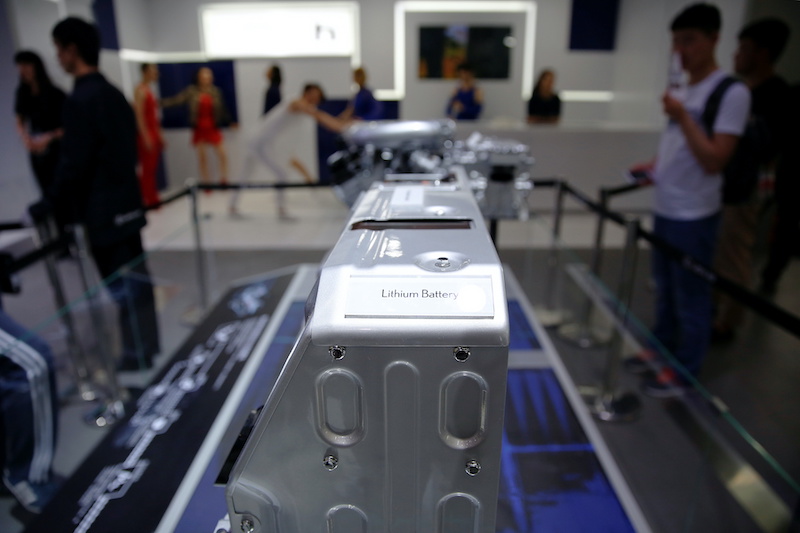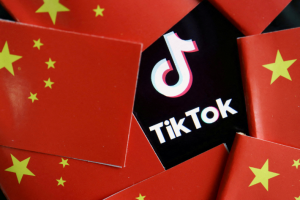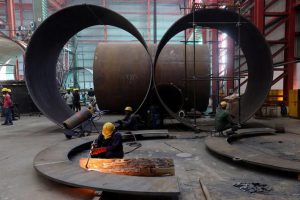Lithium producers in China are flooding the world market in a bid to cause a “predatory” price drop and stymie mining companies seeking to establish rival projects, a senior US official has said.
Jose Fernandez, the under-secretary for economic growth, energy and the environment at the US State Department, made that claim on a visit to Portugal, which has large lithium reserves.
He told a briefing late on Monday that China was producing much more lithium “than the world needs today, by far”.
ALSO SEE: Floods or Drought: Climate Change Worsens Global Water Woes
“That is an intentional response by the People’s Republic of China to what we are trying to do” with the Inflation Reduction Act – the largest climate and energy investment package in US history valued at over $400 billion, Fernandez said, adding:
“They engage in predatory pricing… [they] lower the price until competition disappears. That is what is happening.”
China accounts for about two-thirds of the world’s lithium chemical output, which is mainly used in battery technologies including for electric cars.
Prices of lithium have fallen more than 80% in the past year largely due to overproduction from China and a drop in demand for electric vehicles.
However, the price collapse is also affecting China, as it has forced Chinese companies like battery giant CATL to suspend production at certain mines.
‘Low prices seek to hinder new suppliers’
Europe aims to reduce its dependence on imports from China and other countries of lithium and other materials essential to the green transition.
Fernandez said the low price “constrains our ability to diversify our supply chains on a broad, global scale” and also hurts countries such as Portugal that need investment to develop these industries.
Falling prices have forced many global lithium producers to scale back production and cut jobs.
Portugal, with some 60,000 tons of known reserves, is already Europe’s biggest producer of lithium, traditionally mined for ceramics.
Along with neighbouring Spain, the country wants to take advantage of local lithium deposits, aiming to cover the entire value chain from mining and refining to cell and battery manufacturing to battery recycling.
Several mining companies in Portugal have been looking for financing, customers and suppliers to crank up projects.
“We want to help them, and we think we can… lithium mining companies, everywhere, have to survive this difficult phase that was created by predatory pricing,” Fernandez said.
China’s Premier Li Qiang in June used his address at a World Economic Forum meeting in Dalian to hit back at accusations from the United States and EU that Chinese firms benefit from unfair subsidies and are poised to flood their markets with cheap green technologies.
Trade tensions intensified last Friday when the European Union said it would press ahead with hefty tariffs on China-made electric vehicles to counter what it sees as unfair Chinese subsidies, after a year-long anti-subsidy investigation.
China on Tuesday imposed temporary anti-dumping measures on imports of brandy from the EU.

Rio Tinto bidding for Arcadium
The latest claim comes at a time when Australian-based mining giant Rio Tinto bids for lithium producer Arcadium.
A takeover would turbo charge Rio’s rise to become one of the largest producers of lithium behind Albemarle and SQM, according to Reuters, which revealed on Friday that the companies have been holding talks and that Arcadium could be valued at $4 billion to $6 billion or higher.
The approach was confirmed by both parties on Monday in separate statements that did not offer financial details and declined further comment. It follows a sharp slump in lithium prices that had dragged Arcadium’s shares down more than 50% since January.
Arcadium’s extensive lithium reserves across four continents, as well as its focus on lithium alone, rather than fertilizer or other products like some of its rivals, could prove an attractive prize for Rio.
From Arcadium’s perspective, Rio’s large balance sheet would allow those lithium assets to be developed in time to meet an expected surge in global demand next decade.
Australian shares of Arcadium jumped 46% on Monday, and sparked a jump in other Australian-listed lithium companies. Rio Tinto’s shares fell 2%.
US-listed shares of Arcadium surged 35% in Monday morning trading.
Lithium demand is forecast to surge later this decade from growth in lithium-ion batteries.
By buying Arcadium, Rio would gain access to lithium mines, processing facilities and deposits in Argentina, Australia, Canada and the US to fuel decades of growth, as well as a customer base that includes Tesla, Ford, BMW, and General Motors.
- Reuters with additional input and editing by Jim Pollard
ALSO SEE:
Lithium Battery Supply Chains Blighted by Labour Abuses – WA
China Tamps Down Lithium Battery Makers Amid Overcapacity Worry
Chinese Lithium Battery Chief Urges Beijing to Fix Overcapacity
Breakthrough Lithium Battery Can be Charged 6,000 Times – TX
China Lithium Prices to Tank in 2024 Amid Global Supply Surge
Spiralling China Lithium Prices Hit 26-Month Low on Supply Glut
European Farmers Fear Trade War With China Over EV Tariffs
























